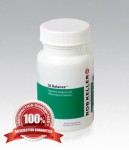Those of us who are familiar with and used to thinking about the importance of digestive enzymes can easily forget that enzymes are important to more than the digestive system . As a matter of fact , in the absence of enzymes we would have no chemical reactions at all, anywhere in our body, because enzymes are the potential labor force available to your body to fire up every necessary chemical reaction. Without enzymes nothing works .
But food digestion uses a considerable investment in energy from the body in terms of enzyme activity . Since we only have a certain enzyme potential when we’re born and we need it to last our entire life, it seems sensible to manage our capacity to manufacture enzymes and supplement when possible . One of the reasons that supplementing is necessary, is because our cooked diet robs us of the enzyme intake that would have been available to us on a diet of raw food . (And if you can understand how we are shortchanged of our natural enzyme intake from our diet of cooked food, just think of the implications for your dogs and cats !)
To provide our saliva and other intestinal juices with the many enzymes required to process our intake of cooked food, we must steal from the supply of enzymes to our heart, brain , lungs, kidneys , muscles and other tissues and organs . According to food enzyme researcher, Dr. Edward Howell, that competition between our digestive tract and our remaining organ systems in our bodies may directly contribute to the development of several different chronic and incurable conditions .
To summarize , in the words of this physician , who has spent over forty years treating ongoing ailments -the depletion of our enzyme ” stocks “, which is the direct result of our diets dominated by enzyme depleted- cooked food, is a leading contributor to premature aging and early death.
Since it is not likely that we are going to move totally to a diet of raw foods , there are two simple steps that we can employ to offset this issue . The first is to make a deliberate plan to eat more raw, fruits and vegetables replacing some of our cooked meals with simpler choices – like grains, fruits and vegetables.
Another idea – that’s also simple is to get into the habit of supplementing with quality digestive enzymes . Maximizer enzymes, which is a product available from RGarden is a multi-enzyme supplement. For people with problems like stomach ulcers, an even better choice is Gamma-Zyme a multi enzyme supplement that does not contain Protease ( for proteins) which can upset some stomachs. Lipase enzyme supplementis also a good choice to help process fat.

